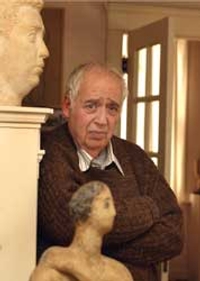Shakespeare: The Invention of the Human
Harold Bloom. Riverhead Books, $35 (745pp) ISBN 978-1-57322-120-7
In some ways the crowning achievement of the controversial Yale critic's career (which has produced The Anxiety of Influence; The Book of J; etc.), this sweeping monograph devotes an essay to each of the plays, emphasizing their originality and their influence on subsequent literature, feeling and thought. The result is a series of brilliant, persuasive, highly idiosyncratic readings punctuated by attacks on current Shakespeare criticism and performance. The ratio of screed to reading is blessedly low; although Bloom has kept his common touch, one feels that he has ceased the play to the peanut gallery that made The Western Canon a cause c l bre. The leitmotif of Shakespeare's ""invention of the human,"" i.e., of the changeable, individual human character, is a useful through-line to the essays but never highjacks them as Bloom's critical tropes sometimes do. Other extravagant claims--that Shakespeare wrote an early version of Hamlet between 1589 and '93, or that the playwright may have lived in physical terror of his street-tough rival Marlowe--may raise eyebrows, but they will not matter to readers who need this book. Those readers fall into two categories: performers and everyone who studies Shakespeare outside the academy. For the latter, Bloom is an ideal cicerone: a passionate, sensitive reader who tempers his irreverent common sense with an even-more-instructive stance of awe. And no critic--not even Bloom's masters A.C. Bradley or Harold Goddard--writes as well for actors and directors, or understands as clearly the performability of the plays. Indeed, it is a great pity that Bloom has not followed the example of Helen Vendler's recent edition of the sonnets and included a recording of his own recitations. BOMC main. (Oct.)
Details
Reviewed on: 09/28/1998
Genre: Fiction
Analog Audio Cassette - 978-0-14-086855-5
Paperback - 768 pages - 978-0-00-729284-4


